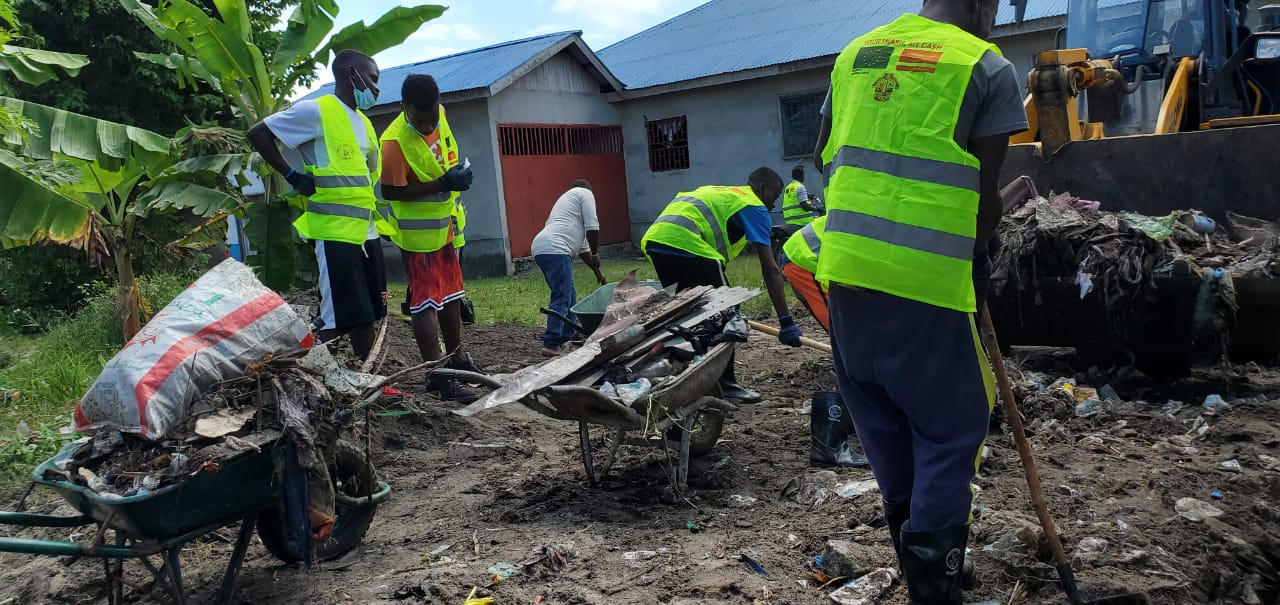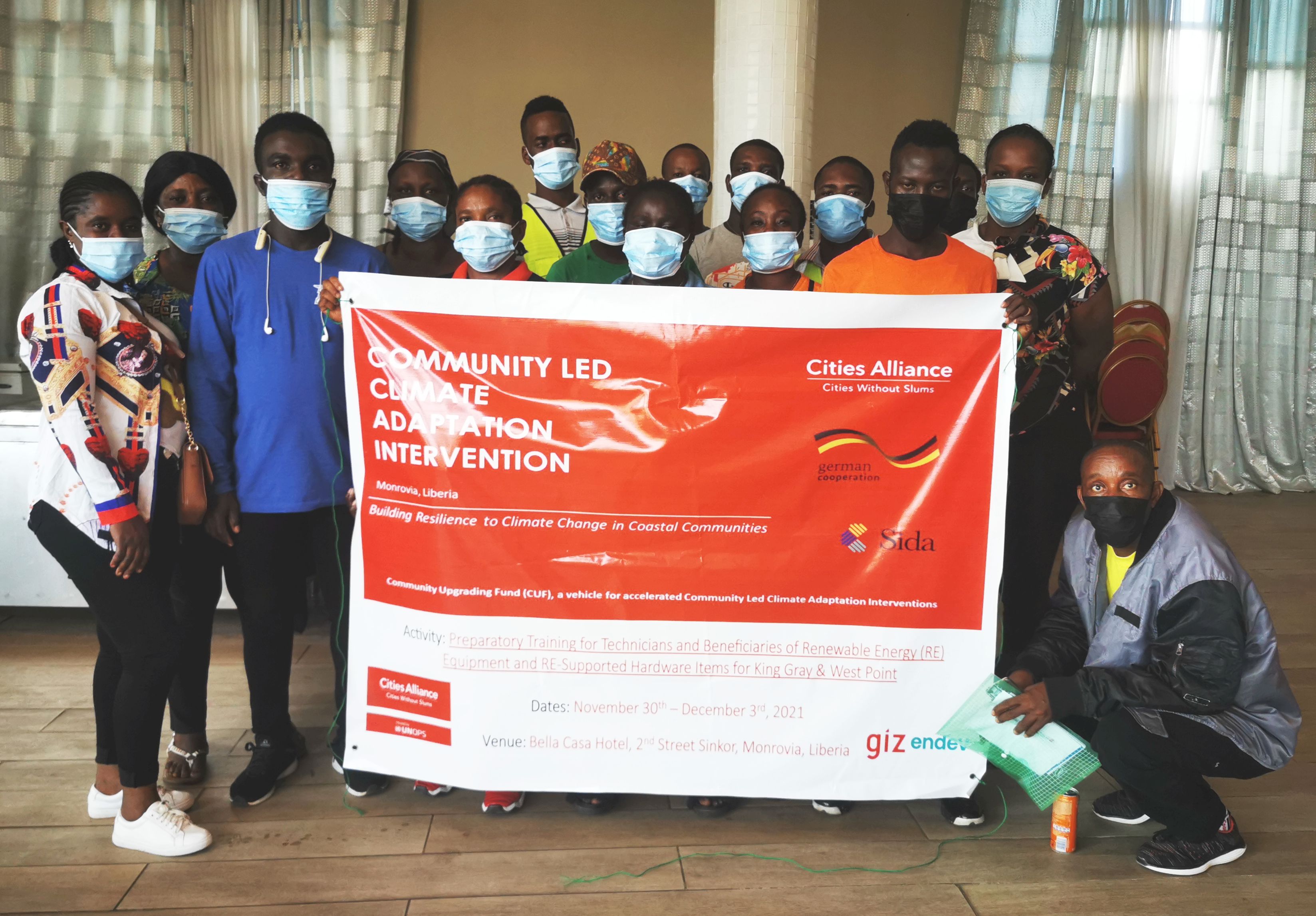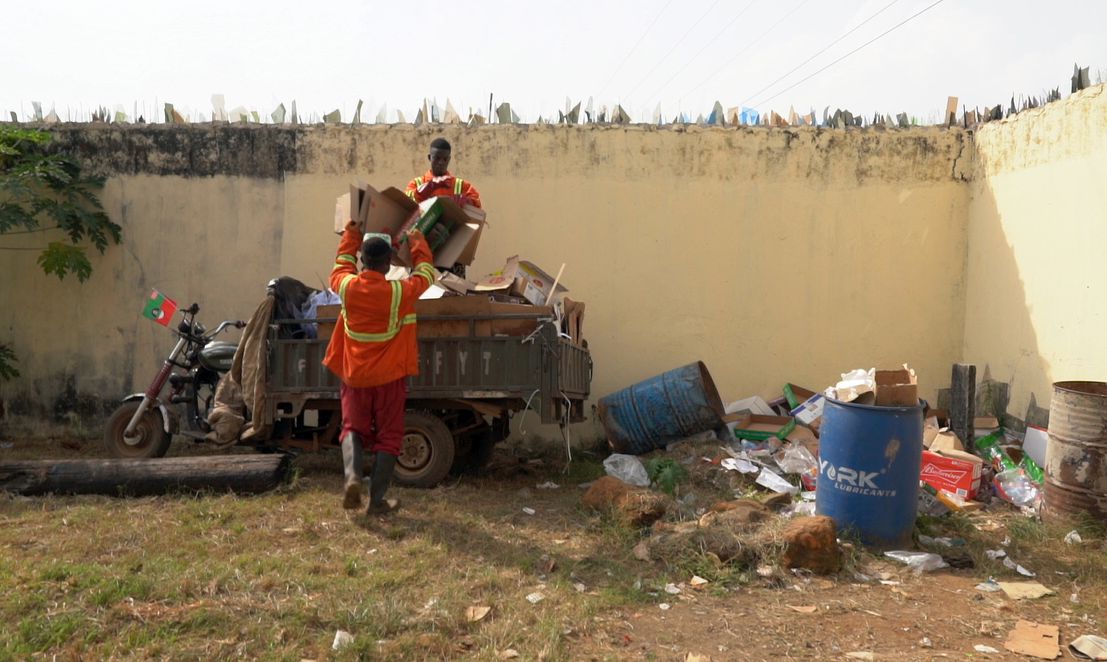The Liberia Country Programme is implementing two projects on solid waste management (SWM) funded by the EU that are helping communities develop lasting capacities to collect primary waste and piloting innovative waste-to-energy approaches.
Now in its second year of implementation, the EU-funded Solid Waste Management project led to improved coverage and effectiveness of SWM through Community Based Enterprises (CBEs). It also improved awareness of climate change and climate-resilient SWM in settlements. In 2019, Cities Alliance completed three feasibility studies that established a baseline and diagnosis of the SWM sector in Greater Monrovia, including the CBE system, and assessed composting and recycling initiatives. By the end of 2019, 30 CBEs in the primary waste collection system were fully operational with reinforced proficiencies in good practice, human resources, and financial management. Since the start of the activity, the number of communities with waste management coverage by CBEs has increased by almost 150%.
Raising community awareness of solid waste and the environment
In 2019, the Country Programme organised two clean-up campaigns, four radio programmes, and one live television broadcast as part of outreach activities targeting the general population on solid waste management, the 3Rs (Reduce, Reuse and Recycle), and climate-smart behaviour. The TV broadcast was aired on Liberia’s national TV network LNTV, which has an estimated audience of 190,000 viewers.
To mark World Coastal Clean-up Day on September 21, the Country Programme team, local schools, and communities participated in a beach clean-up activity organised by the EU to make a visible statement in support of the environment. In addition, eight schools have established environmental clubs on climate change and the 3Rs, amplifying Cities Alliance’s broad approach to raising awareness of – and resilience to – climate change, especially among youth.
There are tons of waste on the street and charcoal is being exported from Liberia. As a result, there is deforestation and it is affecting our climate. We all have a responsibility to do something about it.
Christine Tolbert Norman, co-founder of the Isaac David School in Paynesville, at the launch of a state-of-the-art home biogas system for the school in 2019.
Waste-to-Energy Innovation in Greater Monrovia
Financed by the EU, the waste-to-energy (W2E) project contributes to tackle climate change and its impacts by researching and testing innovative approaches to produce sustainable energy. In 2019, the Cities Alliance completed a feasibility study on W2E that identified small-scale, community-based initiatives to be tested in Greater Monrovia. A pilot initiative assessed the current capacity of selected CBEs to collect data and identify the most suitable W2E and renewable energy options. The pilot initiatives have provided valuable information that are informing Cities Alliance’s approach to project implementation. They are also providing crucial information to help the Monrovia City Corporation (MCC) and the Paynesville City Corporation (PCC) design and run their own pilot initiatives on waste collection and enumeration at the household level. At the end of 2019, Cities Alliance installed ten eco-friendly, home biogas units and toilets across Greater Monrovia that provide clean energy.12





